“Even small stories can turn into big movements and trigger bigger change.”Özge Açıkkol, Güneş Savaş and Nadin Reschke
Four months in Tarabya
“Even small stories can turn into big movements and trigger bigger change" – Read a testimonial from Özge Açıkkol and Güneş Savaş from „Oda Projesi“ in Istanbul and the Berlin-based artist Nadin Reschke about their experience and learnings from a four-months tandem-residency in Tarabya.
November 17, 2023
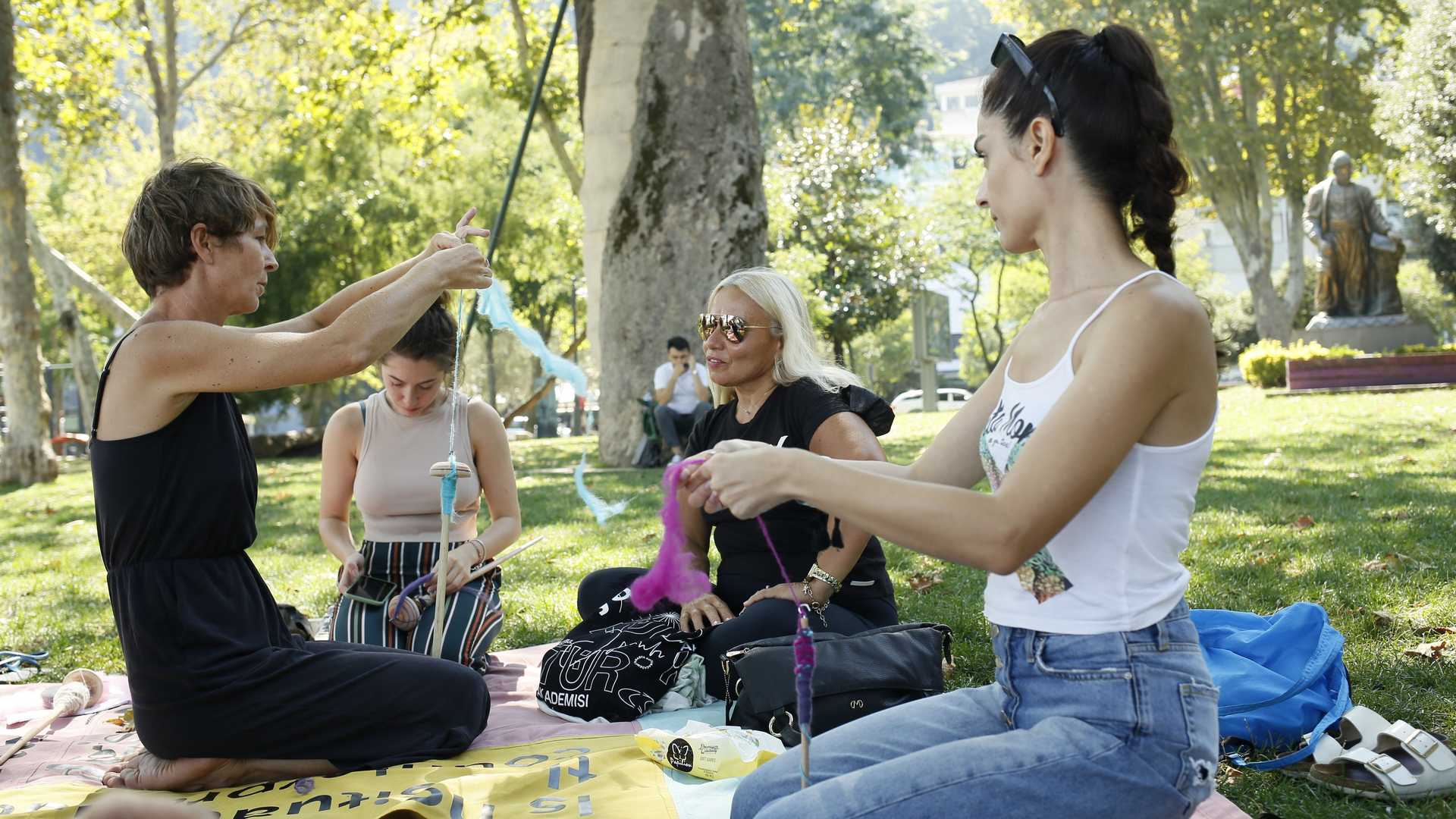
Learning how to spin together © Münevver Göçmen
Project description
Tarabya Cultural Academy
Interview
With Özge Açıkkol and Güneş Savaş from „Oda Projesi“ in Istanbul and the Berlin-based artist Nadin Reschke
What was your experience during your months together at Tarabya?
“Tarabya Cultural Academy, as a space, created an almost ideal place for working intensively on an artistic project. Located outside of the bustling city center, it provided enough concentration to focus on a project in depth. Four months of continuous meetings and discussions brought us close together after some years of working on similar topics but from different geographies and perspectives. We reflected the meaning of Tarabya as “Therapia” as well because our studio, in the midst of the gardens and forest of the cultural academy’s premises, confronted and provided us with our own fragility and resilience. The main questions our project addressed were not specific to Istanbul or Turkey but rather looked at the effects of the pandemic from a personal/individual and at the same time global perspective. Our work is based on concepts of mothering, sisterhood, and solidarity between women, and during our collaboration in Tarabya we were able to share and reflect mothering activities and experience sisterhood and solidarity with each other.”
Your co-production fellowship ended – but does your cooperation continue? Do you have plans for the future?
"The project “Words to spin dialogues around the pandemic – An ongoing research project” that we started working on in Tarabya with the support of Allianz Foundation, as its name reveals, is still in its infancy. We will continue to reshape, reflect on, and share with others the experiences we accumulated in our workshop meetings with the participation of 11 women (Aylin, Burcu, Cemile, Dilek, Ebru, Esra, Gülay, İlkay, Melek, Reyhan, Zeynep). We have already documented on video that part of the project that has been realized so far. We intend to turn the project outputs into a publication and to propagate them, sharing with others, just like the rings that a stone thrown into the water will form. We are still in the first ring.
We see our collaboration not as something that is project-based but as a continuous process of learning from each other. The questions we dealt with in our project are questions that we have asked ourselves for the last three years: How has the pandemic changed our daily routine in terms of care work? What strategies have we found for dealing with the pandemic situation? How can we confront our own fragility? And these questions will keep us busy for the next two years because we audio-recorded all the discussions in the project to serve as material to work with in the coming months. And we are certainly continuing to ask and try out how we can investigate feminist maternal practices as sites for women’s empowerment and social change."
Your joint artwork “Words to spin” was one of the outcomes of the residency. What’s the story behind it?
"We wanted to find out what we encounter when we share our experiences of the pandemic in a collective process with all women and everyone who identifies as a woman. The pandemic has acted as a catalyst of fragility. Gender roles have shifted and we’re experiencing a pushback. Through an open call we invited women from diverse backgrounds to discuss questions around post-pandemic normalization, sharing of care work, support and solidarity mechanisms, invisible domestic labor, and new strategies that women found during the pandemic.
We introduced hand spinning as an ancient textile technique to create personal storytelling situations and to induce physical visibility with the help of this material. Driven by the need for visibility in an otherwise patriarchal society, we believed in empowerment and transformation resulting from coming together and the mutual exchange of personal experiences. Each time we met with the women in a different park in Istanbul, claiming public spaces with seemingly daily activities such as picnicking, talking, and walking. Spinning connected us and helped us imagine different feminist futures – a thread that connects us all.
In the video of one of the five workshops, you can sense the atmosphere, the depth of the conversations and relationships that emerged between the group of women over the four months. We concluded the work with a sentence that came out of our discussions: Dokunmadan Hissetme, which means: “Don’t feel without touching.” It was one of the women’s suggestions when we were trying to summarize the overall process of our gatherings. She explained it as “we shouldn’t be prejudiced against people that we don’t know.”
What are your take-aways from the conversations with the women participating in your artwork? What needs to be done?
"Conversations in the group were both very different and very similar at the same time. Each woman, of course, had/has her own tactics for dealing with the pandemic situation, but the most common act among all our participants (who came from different backgrounds) was that the responsibility of leading a life was stronger than every other act. Although the participants had different social statuses, this common pattern was in the middle of our conversations.
The four months we worked together was, for us, like a magnifying glass that helped us to see some details through which we understood that we have so much in common with other women. But, to tell the truth, what needs to be done is a big question for now, which still needs to be answered, and our project only gave us the time and space to define the problems that became more visible through the pandemic. But to be able to answer this wonderful question the women also need to put some distance between themselves and this pandemic time that we are still in. So, it is still hard to get the necessary distance to look at it from the outside, because we are still in the crisis, and everything is still so fragile and the near future still seems blurry.
But with each workshop and the conversations around it, we were able to get out of that imposed space and look at it from the outside as an exercise, and this created an awareness for all of us: As the initiators of this project, we did not feel like we were conducting a workshop/project, but that we were part of the group and also gained a lot of awareness about our own individual situation, almost equally within the group. So, for now, the clearest answer to “what needs to be done” could be about telling our stories to each other everywhere and any time we can. Because these minor stories, having a snowball effect, can be turned into bigger movements and bigger change in the end."
You are among the first generation of the co-production grants. Do you think the program matters? Why?
"In our specific case, it was very meaningful for us to get the chance to work together again within the time and space provided by the co-production grant in Tarabya and to also track the changes in our practices, behaviors, and opinions over time.
But besides this specific situation, we find this kind of togetherness highly valuable considering the recent political situation in Turkey and how the international side of the artistic milieu in Turkey became a little deserted after 2015 following the attempted coup. Because cultural exchange between Europe and Turkey was, in a way, frozen and many artists in Turkey were not able to collaborate with their European colleagues in their own geographical area, and they started to feel that there was a big gap opening between these two geographies for political and economic reasons.
Also, considering the recent situation concerning Schengen visas, which every day becomes harder and harder for artists in Turkey to get, the co-production fellowship matters a lot, first of all because of its very basic aim of bringing two artists (or groups) together in one place and to not only giving artists from Germany the possibility of experiencing Istanbul and Turkey and its art scene, but also to open up possibilities for artists from Turkey to produce within their own situatedness and to collaborate with an artist from within the European context."
Do you have any tips or advice for the next generation of residents? And for the organizers?
"Art has always incorporated many different languages and ways of seeing. Artists have instrumentalized many essential human endeavors such as science, archiving, oral history, philosophy, ecology, and mathematics for their artistic production. As John Berger said, "we resist with art." We need to take this seriously and continue to embrace and support, multiply and share an awareness of life and what is happening right now."
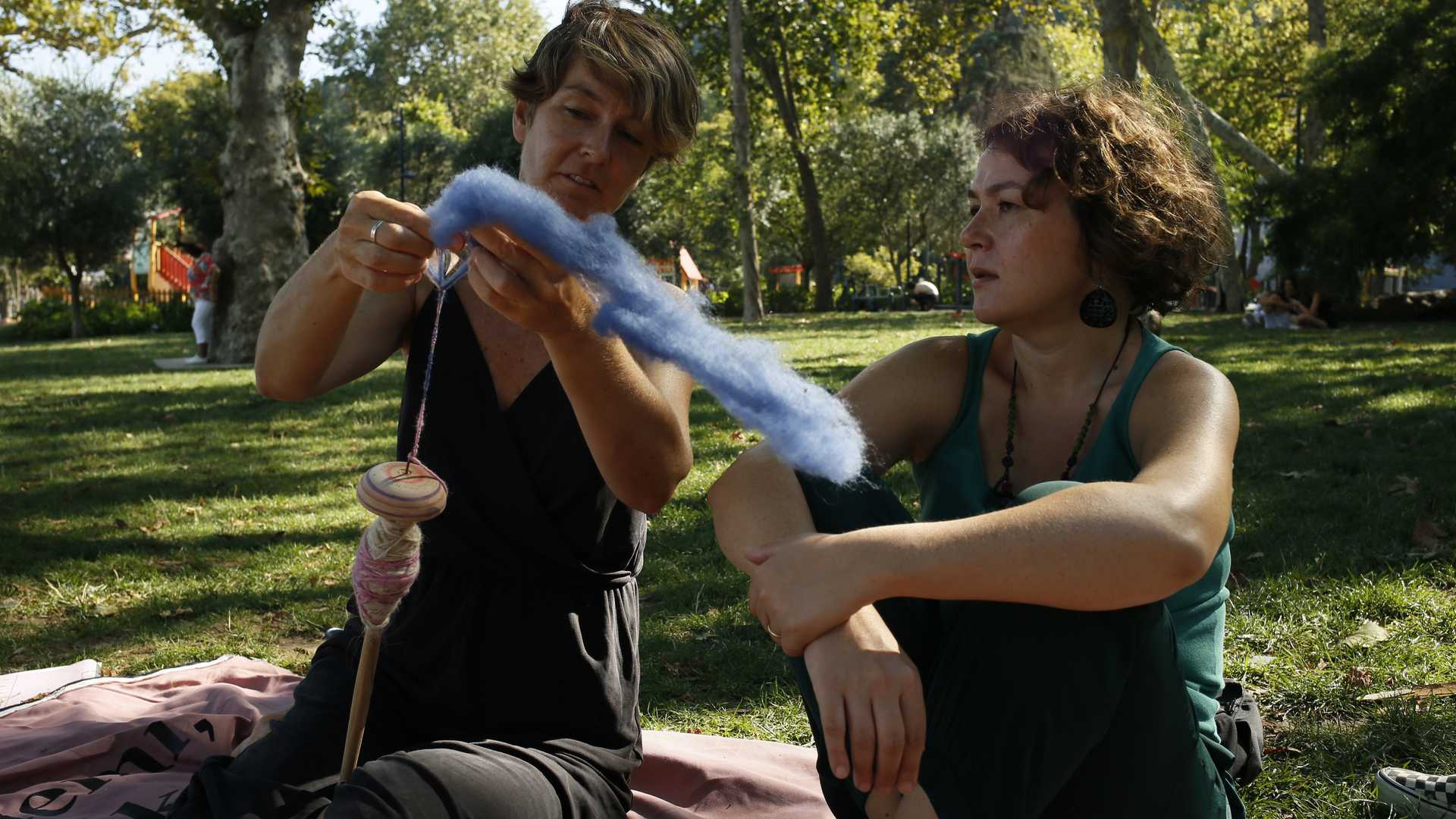
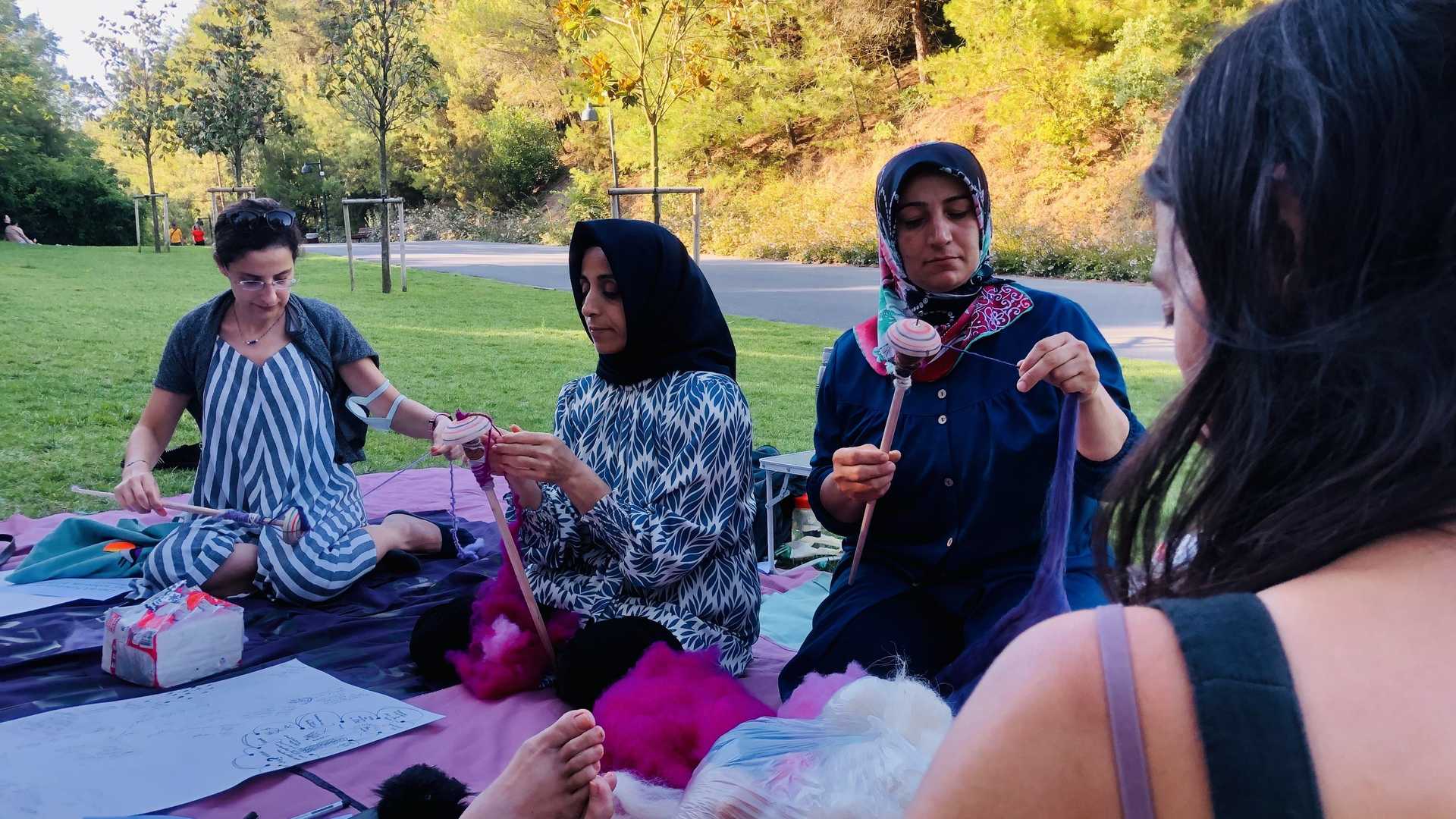
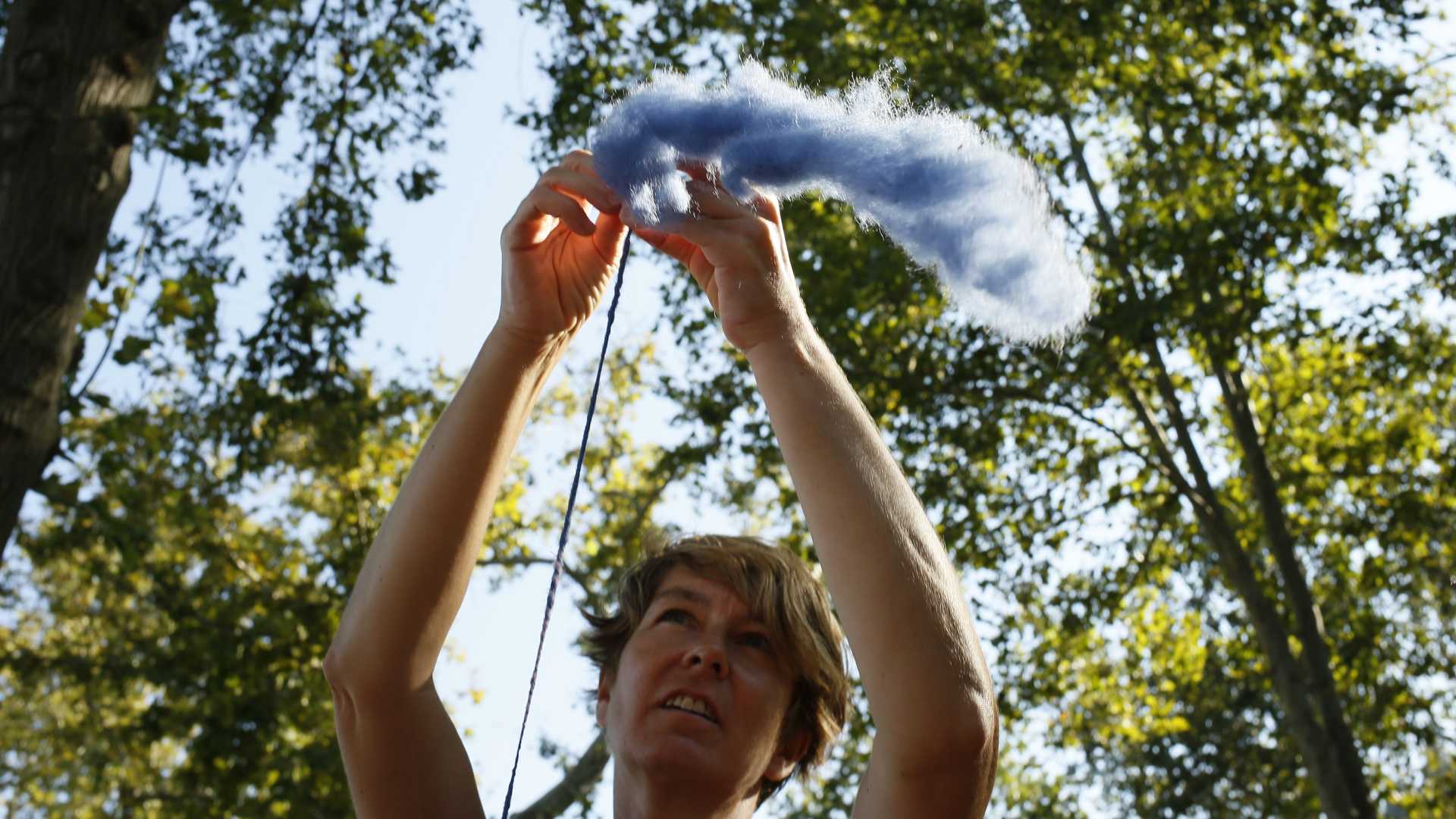
About
Since 2000, Özge Açıkkol, Güneş Savaş, and Seçil Yersel have been forming "Oda Projesi", a multidisciplinary artists' collective in Istanbul. They organized projects, gatherings, and actions in their nonprofit, independent space until Oda Projesi had to be closed in 2005 due to gentrification. Since then, the collective has been working mobile but continues to address questions of social relations, precarity, cultural labor and parenthood, through various media such as radio, books and newspapers. More information.
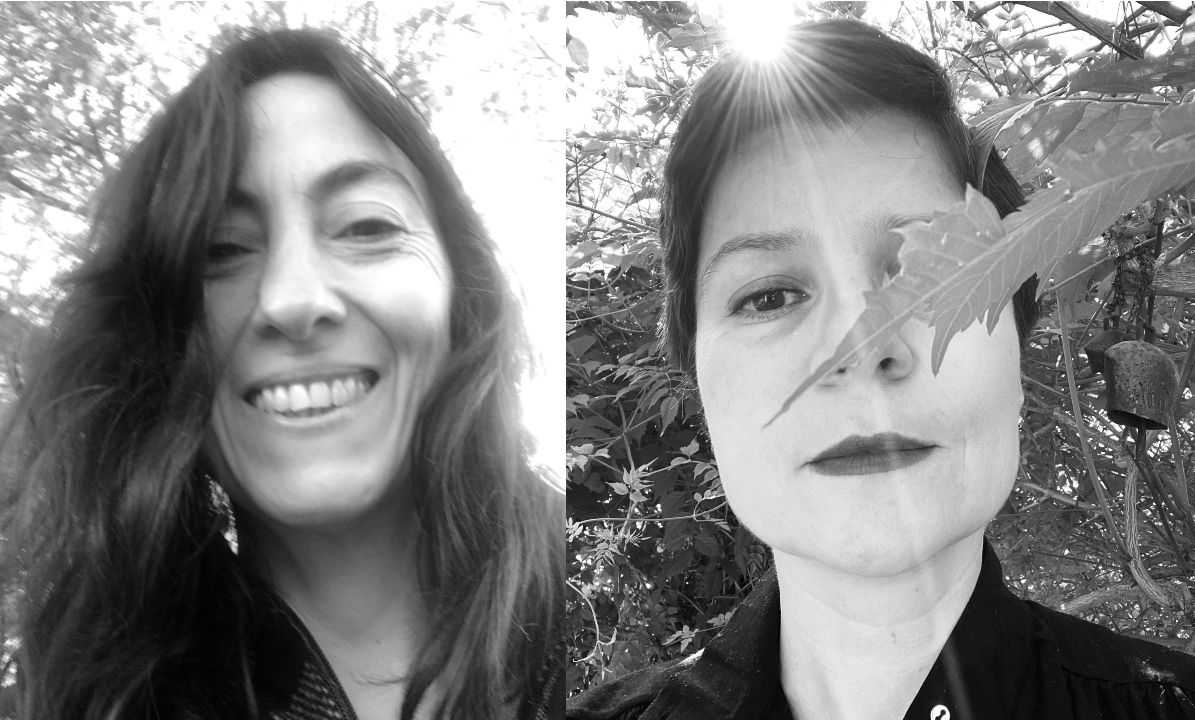
Nadin Reschke, born in 1975 in Bernburg an der Saale, lives and works in Berlin. She studied art and art therapy in Wales and Dresden. In her work, Reschke focuses on social issues and collaborates with people outside the art world. She initiates dialogue and creates a framework for social action. Reschke's work has been shown and published in numerous international exhibitions. More Information.
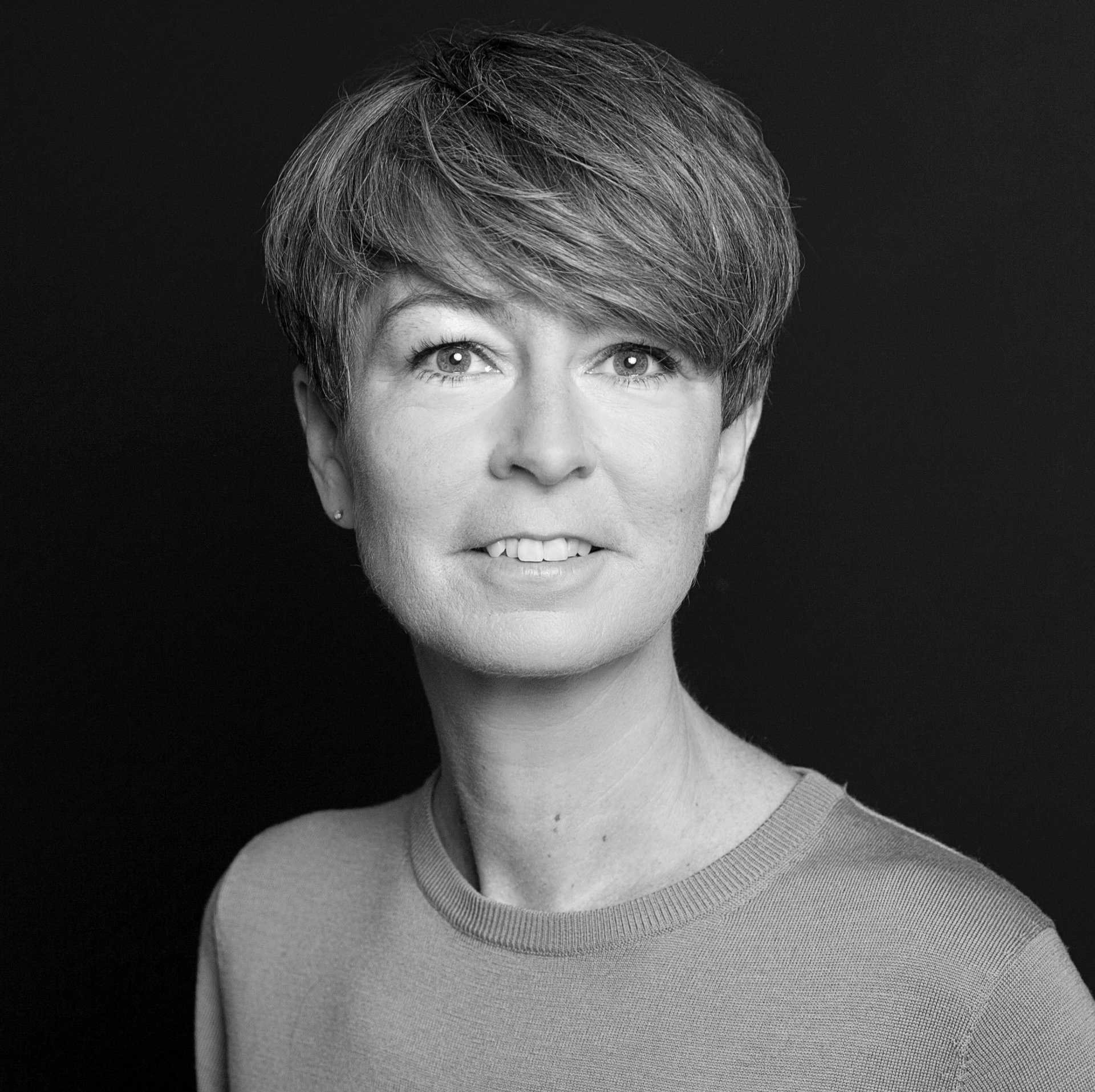
The historic summer residence of the German ambassador is located in the former spa town of Tarabya, now part of the metropolis of Istanbul. The property was a gift from the Ottoman Sultan Abdul Hamid II (1842-1918). In 1880 he gave it to the German Empire for diplomatic use. The property therefore still has the status of an embassy grounds to this day. In the front part there are ten buildings, mainly in the style of Turkish summer houses (yali), and the German military cemetery. The Cultural Academy occupies the former embassy chancellery, where there are five artist apartments. Two more artist apartments and studios were built in the former coach house. More information.